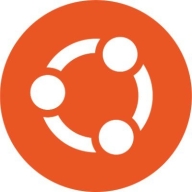

Ubuntu Linux and Oracle Solaris both compete in the operating system market, particularly in server environments. Ubuntu Linux often gains preference due to its open-source nature and cost-effective deployment capabilities, while Oracle Solaris is valued for its robustness and integrated virtualization features.
Features: Ubuntu Linux offers a secure platform with protection against viruses, faster boot and load times, and a strong open-source community for flexibility and customization. Oracle Solaris is noted for its stability, robust virtualization technologies like Zones and LDOMs, and deep integration with Oracle products, enhancing resource efficiency.
Room for Improvement: Ubuntu Linux could improve compatibility with Windows software, such as 3D games, and simplify system management integrations and its user interface. Oracle Solaris would benefit from broader certification for non-Oracle hardware, better GUI capabilities, and enhanced third-party integrations to expand its market reach.
Ease of Deployment and Customer Service: Ubuntu Linux is easily deployed in private, public, and hybrid clouds, with a strong community mitigating the need for direct support. Oracle Solaris is enterprise-focused, requiring official support channels and is often tied to Oracle's ecosystem, which can limit community assistance options.
Pricing and ROI: Ubuntu Linux is free to use, offering significant ROI for enterprises under financial constraints seeking scalable solutions without licensing fees. Oracle Solaris, on the other hand, involves higher costs due to its specialized features and integration capabilities, promising long-term enterprise stability.
In terms of ROI, there have been performance improvements because Oracle Solaris is lighter.
The technical support by Oracle is good.
They responded well, understood that the issue was not on my end, and provided a patch within two days.
The community around Ubuntu Linux is beneficial, providing answers to questions and assisting with issues.
Ubuntu Linux has a comprehensive knowledge base for self-help.
Regarding vertical scalability, Oracle Solaris is probably one of the most scalable operating systems in the industry.
In a server environment, it can seamlessly adapt to increased customer demand.
Any Linux is scalable in terms of capacity, and on a day-to-day basis, we use scalability options with the help of Kubernetes clusters.
So far, I do not have any issues related to security in Ubuntu Linux.
The system has been completely stable, which makes it deserve a perfect score.
Ubuntu Linux is extremely stable and maintains uptime effectively.
Ubuntu Linux is generally stable, though there can be occasional issues with new hardware integration.
The firewall must be more capable because security is the main concern of every organization and every user.
Oracle Solaris needs to improve its compatibility with office tools like Excel.
Oracle is going to discontinue it, so I do not think any improvement is possible in Oracle Solaris.
There is a push towards integrating AI into software for various purposes like video and sound processing.
Stability issues occur when integrating new components due to physical or technical challenges.
Unlike CentOS, Ubuntu Linux lacks an easily accessible inbuilt repository where dependencies or packages are easily found.
I find the pricing of Oracle Solaris to be affordable compared to competitors like Windows.
For an enterprise-wide scalable operating system with professional services, you can select Ubuntu Linux at a reasonable price.
The setup cost is free.
Ubuntu Linux is open-source, leading to cost savings through its free availability.
The operating system is lightweight, which makes it easier to use on an average computer compared to systems like Windows.
Additionally, regarding security, you do not have to implement any antivirus software.
Oracle introduced a GUI environment with Solaris 11.5.
Ubuntu Linux's open-source nature supports community contributions, bolstering its development and support ecosystem.
Ubuntu Linux supports remote troubleshooting via SSH, allowing connection from anywhere, which is beneficial for troubleshooting server issues.
In terms of security, I am satisfied with Ubuntu Linux and I can rely on its security features more than I can with Windows.
| Product | Market Share (%) |
|---|---|
| Ubuntu Linux | 9.0% |
| Oracle Solaris | 2.0% |
| Other | 89.0% |


| Company Size | Count |
|---|---|
| Small Business | 21 |
| Midsize Enterprise | 5 |
| Large Enterprise | 32 |
| Company Size | Count |
|---|---|
| Small Business | 84 |
| Midsize Enterprise | 21 |
| Large Enterprise | 53 |
Oracle Solaris is a trusted business platform that provides consistent compatibility, is simple to use, is always secure, and is designed to help you run your modern and legacy enterprise applications. The solution is the most recommended enterprise operating system for Oracle Database and Java applications and is engineered for large-scale enterprise deployments.
Oracle Solaris Features
Oracle Solaris has many valuable key features. Some of the most useful ones include:
Oracle Solaris Benefits
There are many benefits to implementing Oracle Solaris. Some of the biggest advantages the solution offers include:
Reviews from Real Users
Below are some reviews and helpful feedback written by PeerSpot users currently using the Oracle Solaris solution.
A CEO at a computer software company says, “The most valuable feature is virtualization. They have attained virtualization and it's quite simple to create the Oracle Solaris zones. The solution is quite powerful. Oracle Solaris is great due to the fact that it actually is meant for high-end servers. The high availability is great. You can clone and you can do quite a number of things with them. There's also the ZFS File system which is very good. Is one of the best file systems that there is.”
Diego A., Oracle ACE - Specialized in Systems Technologies at Telecom Argentina, mentions, “The most valuable features for me are virtualization (Containers, Zones, Security, PDOM's, LDOM's) and Performance, ZFS, Debugging with Dtrace.”
A Service Manager at a tech services company expresses that the solution is “Stable, scalable, and has easy installation.”
PeerSpot user Marcel H., Oracle ACE Director "Solaris," CEO, Enterprise Consultant at JomaSoft, explains, “Solaris includes two virtualization solutions: LDoms for SPARC and Solaris Zones. Both solutions can be combined to create private clouds. Solaris Zones is ideal to separate applications and to migrate from older to current hardware. LDoms is very efficient because it uses the hardware hypervisor of the SPARC servers. Both technologies increase Security, because they separate the applications from each other. Using the Security Compliance Framework we are sure the systems are set up properly.”
Shafiq K., Senior Manager IT Operations at a financial services firm, states, “The reliability of the solution is excellent. The security has been very good overall. We've found the solution to have good availability. The backup capabilities are quite good. The solution has proven to be quite stable so far. The product can scale. The solution is 100% free to use. It doesn't cost a company anything as it's embedded in the hardware.”
Ubuntu Linux is an open-source platform known for its robust security, ease of use, and rapid performance. Its lightweight design and comprehensive support system make it ideal for diverse IT environments, providing seamless management and scalability options.
Ubuntu Linux stands out with its open-source nature that allows extensive customization and access to a broad range of free software. It is widely praised for its stability and a vast package repository offering regular updates, enhancing its usefulness across different sectors. The platform is equipped with a lightweight design and excellent community support, making it scalable and easy to manage. While it could improve in areas like Windows software compatibility and user interface refinement, its benefits in enterprise management and development projects are undeniable. Improved documentation, better hardware integration, and enhanced third-party application compatibility are additional focal points to consider.
What are the key features of Ubuntu Linux?
What benefits should be considered from reviews?
Ubuntu Linux is prominently implemented in industries for tasks such as server management, application deployment, and software development. Its resource efficiency and open-source tool compatibility make it a favorite for programming, research, and cybersecurity. Companies frequently use it for web hosting, cloud services, and managing multi-user enterprise solutions.
We monitor all Operating Systems (OS) for Business reviews to prevent fraudulent reviews and keep review quality high. We do not post reviews by company employees or direct competitors. We validate each review for authenticity via cross-reference with LinkedIn, and personal follow-up with the reviewer when necessary.